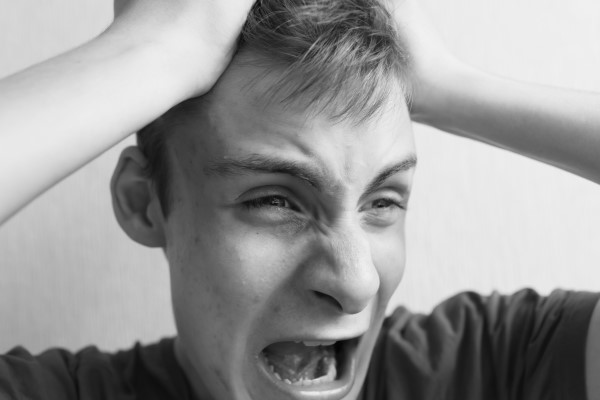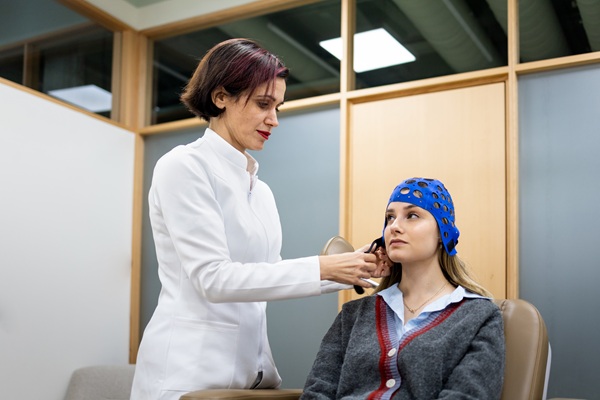How Successful Is TMS Therapy?

Transcranial magnetic stimulation (TMS) is still somewhat new as a treatment for depression, and many researchers are still studying its applications, safety, and effectiveness. According to Patient Preference and Adherence, many of those seeking depression treatment do not get a positive response from the different antidepressant medications, or they have to deal with undesirable side effects. When TMS was approved by the FDA about a decade ago, it presented a fresh hope for recovery from depression symptoms.
The success rate of TMS therapy
Many patients considering TMS therapy want to know the chances of success and what they can expect by undergoing the procedure. Based on the data available from most TMS providers, the success rate stands between 70% and 80%, meaning that most people who undergo treatment experience relief after the treatment. Approximately 50% of patients go into full remission, meaning they become completely asymptomatic after one treatment routine.
To fully understand the success of TMS, it is vital to learn about the success rate of medication. In a study funded by the National Institute of Mental Health, scientists discovered that the medications commonly prescribed for depression, including selective serotonin reuptake inhibitors (SSRIs), have a success rate of about 27.5%. However, when an SSRI fails to yield results, as often happens with people with treatment-resistant depression, the success rate of medication goes down.
By the time that the patient gets to the fourth medication, the effectiveness rate of the next drug is lower than 7%. It takes one or two months to be sure if an antidepressant is working, and patients may end up spending four to eight months on medication trials when remission chances are insignificant. Increased use of medications also means a higher risk of dealing with unwanted side effects of medications, such as nausea, weight gain, headaches, sexual dysfunction, and gastrointestinal discomfort.
Multiple clinical trials have shown that TMS can alleviate treatment-resistant depression successfully and that the outcomes are long-lasting. A nine-week treatment period is necessary to achieve these TMS therapy success rates. Maintenance sessions may also be necessary sometimes. Some people may have depressive symptoms again in the future, and TMS may be required for these individuals a second time.
Factors that affect the success rates of TMS treatment
The success rate of TMS treatment varies from person to person, yet TMS is successful for most individuals. However, recent research suggests that there are a few factors that may influence whether a patient responds to TMS treatment.
Age: TMS has been demonstrated to be more effective in patients under the age of 60.
Personality: Those who scored higher on the temperament and character inventory (TCI) personality scale for tenacity (those who are tenacious tend to persevere even when annoyed or weary) responded more swiftly to TMS. Psychiatrists worldwide utilize TCI to determine and categorize personality types.
Treatment-resistant level: TMS seems to have a more favorable effect on patients who are resistant to antidepressant medicines, especially those who had tried more than one type of medication.
Using antidepressants: Those taking antidepressants while undergoing TMS may have a better success rate. The reason is that both treatments can work synergistically.
TMS is not recommended for individuals with a history of seizures or a permanent metal implant in the head.
TMS works for depression
This overview makes it evident that people dealing with treatment-resistant depression need alternatives. The original research for TMS considered patients with low chances of remission and discovered that two-thirds of patients often had successful experiences after undergoing TMS therapy. The researchers found that those who had lost hope due to dealing with anhedonia and had run out of options noticed that they no longer had the symptoms after six weeks.
Generally, it is evident that TMS therapy is successful in treating major depressive disorder. Although there are currently additional studies for improving the application of TMS for depression, there should be no reservations regarding TMS's effectiveness.
In conclusion
If you want to treat your depression and are worried about the side effects of antidepressants, TMS therapy is a viable alternative. TMS is a non-invasive treatment for depression that delivers magnetic pulses to specific parts of the brain that regulate mood. TMS can help restore mental health to normal and with minimal or no side effects.
If you are considering this procedure, contact the office to know if you are eligible. The provider will provide you with the necessary guidance and perform the required evaluation before proceeding with the treatment.
Get more information here: https://futurepsychsolutions.com or call Future Psych Solutions at (803) 335-5232
Check out what others are saying about our services on Yelp: Read our Yelp reviews.
Recent Posts
Mental health plays a critical role in overall well-being, influencing thought patterns, emotional stability, and behavior. For those experiencing persistent challenges, a formal diagnosis can provide clarity and a structured approach to healing. With guidance from a psychiatrist, individuals can better understand their condition and begin a path toward long-term mental wellness.A mental health diagnosis…
Are you looking for a TMS doctor? A TMS doctor is one that offers Transcranial magnetic stimulation to treat patients with major depressive disorder, which is also called MDD or clinical depression. Every TMS doctor utilizes their own method of treatment and many practices under other titles such as that of a psychiatrist. Learning more…
Post-traumatic stress disorder (PTSD) is a mental health condition that can develop after experiencing or witnessing a traumatic event. PTSD treatment aims to reduce symptoms and help people function better in their daily lives. It also focuses on improving their overall health and well-being. PTSD often causes anxiety, flashbacks, and emotional distress, making effective treatment…
Everyone experiences occasional anxiety, but an anxiety disorder involves persistent, excessive worry and physical symptoms that can disrupt daily routines, relationships, and overall well-being. If left untreated, these symptoms can intensify, impacting mental and physical health. Seeking help from a psychiatrist can be a significant first step toward effectively managing anxiety disorder symptoms and getting…


